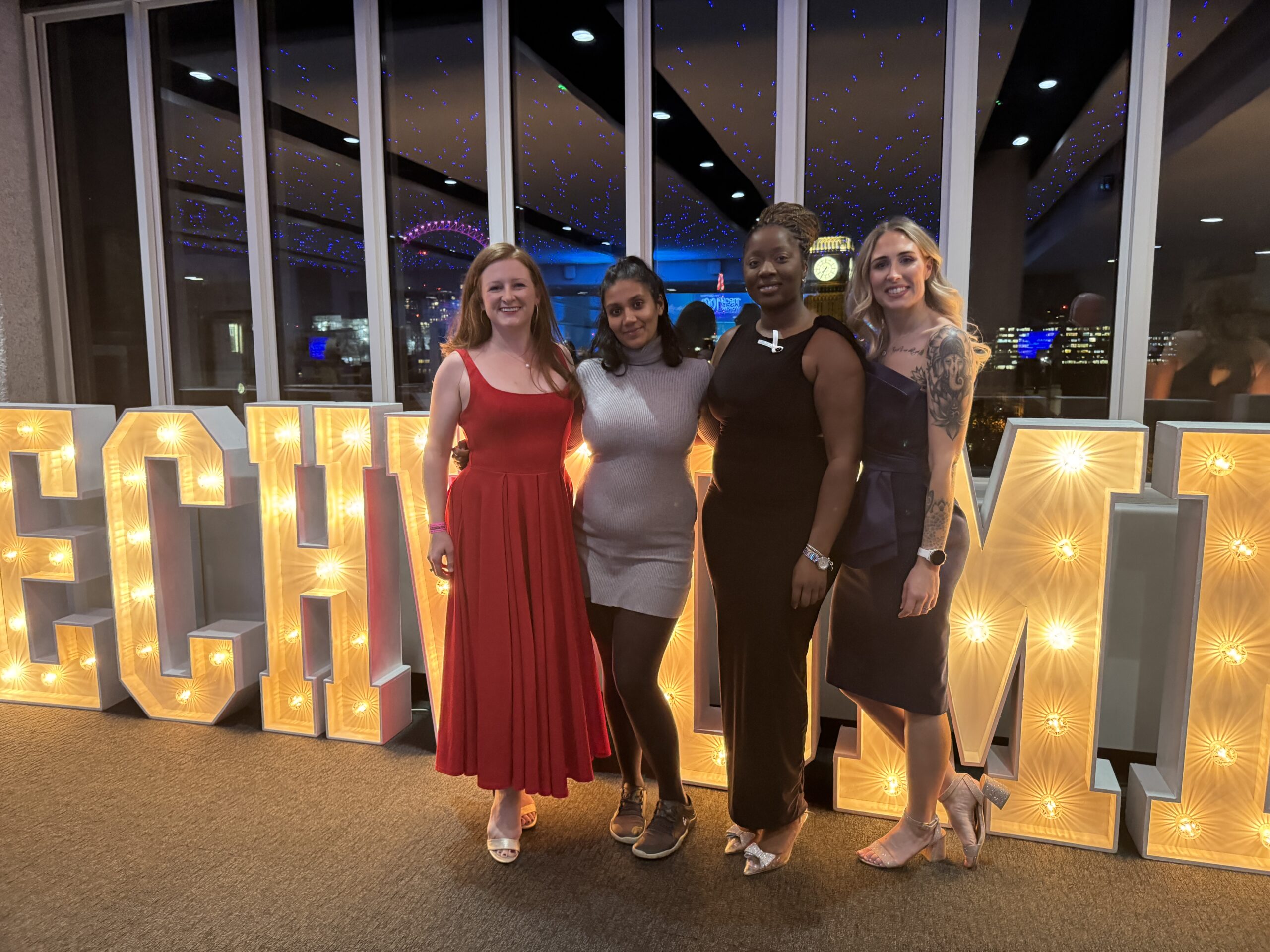Meet Beckie McAnespie, Senior Information Assurance Consultant
One of the 2024 TechWomen100 individual finalists, Beckie reflects on her transition into corporate life after serving in the Royal Corps of Signals. She highlights the critical need for “secure by design” – integrating security measures from the start as cyber threats grow increasingly sophisticated.
What I do
I joined the information assurance team in April 2023 after nine years of military service in the Royal Corps of Signals. With a focus on cyber security, my current role involves reviewing existing security architectures and advising on remediation to protect against potential threats. A key aspect of what I do is ensure compliance with IT governance standards and risk assessment processes, highlighting potential vulnerabilities. Cyber resilience is no longer a ‘nice to have’. AI democratises access to malicious technology like ransomware and, according to a report published by the National Cyber Security Centre, will increase the volume and heighten the impact of cyber attacks in the next two years.
Operating at the forefront of new and emerging cyber challenges is where I find my purpose. I enjoy working on complex, highly-sensitive and large-scale digital transformation programmes. A flagship project I recently worked on focused on securing an operational platform that handles large amounts of data in the law enforcement sector. I worked on reducing cyber security attacks, which was a challenging but exhilarating task as the system protects against thousands of threats yearly. One major challenge for organisations in today’s uncertain environment is the tendency to view technology as a quick fix while neglecting the importance of effective processes and policies. ‘Secure by design’ is our mantra to ensure more sustainable and effective outcomes, even if going live with a product or service takes longer. Built-in security from the outset is considered best practice, relieving operational stress and creating a more robust system.
Looking to future trends, AI is the inevitable game-changer. We must embrace it wisely, nurturing its development much like raising a child—with responsibility and good ethics—because its integration into our lives will be profound. Thankfully, it’s not all doom and gloom. Reading works like “Scary Smart” by Mo Gawdat helps me stay optimistic about AI’s potential, even while acknowledging its challenges.

"Retrofitting security is not the most effective solution. It needs to be woven into the ecosystem from the get-go so it becomes secure by design!"
A day in my working life
Every day brings its own set of challenges and a wide variety of tasks and activities. My typical day is split between meetings with colleagues to ensure projects and annual assurances are on track, especially after significant changes. If something presents a new risk, I’ll draft a risk paper to present to the client, complete with strategies for mitigating any potential risks.
I mainly work on critical national infrastructure projects, such as a system that holds vast amounts of sensitive data, where a successful cyber attack would pose a threat to the UK’s security. A proactive risk management approach is paramount, so I’ve been developing and implementing a workbook to record and assess potential threats, allowing us to identify and address vulnerabilities promptly.
I am pleased I made the right decision moving into cyber. Transitioning into civilian life is not easy – it marks an enormous change for all service leavers and their families. I left behind my military career of eight years, pivoted to a new industry, a new role, a new location, found a school for my older son and nursery for my younger one! It’s a huge upheaval, and what stands out for me is how understanding 6point6 was about my transition into civilian life. They supported me before I had even started my role by offering me nine months’ lead time, so I had one less thing to worry about whilst reorienting my life outside of the forces.

"6point6 enabled a smooth transition into civilian life. The culture is also a strong selling point. I love the people, I love the atmosphere, I love the environment. My colleagues are genuinely supportive and have made my resettlement seamless."
Career highlights
Hard work fuels my success, but I’ve also been fortunate to work with organisations that recognise my talents and push me to excel. I struggled at school, and I’ve come to realise that formal education isn’t the only path to success. We must see the value of people as individuals rather than the product of an exam or educational pathway—especially as the number of girls in England studying for a GCSE in computing has more than halved.
I love supporting and mentoring teams more than anything. My career highlights are better measured by how many people I’ve helped along the way. Perhaps that ethos was instilled in me while I was in the military or just my strong values guiding me. One thing’s for sure: this is how I operate at my best and what motivates me to excel in my career. I really enjoy providing practical training and mentoring support. For example, I recently volunteered to lead the facilitation of GDPR training to keep all information assurance managers in my company up to date with the latest data protection regulations and internal data privacy processes – something that is especially important given our work with central government departments. I want to support others, particularly young people who might be put off by the daunting world of cyber security with its own set of jargon. I was recently an expert judge at the UK Cyber Leaders Challenge, the only cross-disciplined cyber student competition in the UK, delivered in partnership with senior British government and industry stakeholders.
Information Assurance is one the best jobs in the world because…
You’re stepping into a world where you’ll have the opportunity to sink your teeth into root causes and unravel complex issues. It’s a field where understanding why risks exist allows you to provide the best advice on mitigating them. You’re constantly firefighting against evolving threats, which keeps the job exciting and dynamic. There’s always something new to learn, with so many opportunities to strengthen your knowledge through training, podcasts, and networking. Adaptability is key in a fast-evolving field – a skill ingrained in me during my military training. That mindset is essential in ever-changing sectors like cyber security.
The best advice I can give to women who are thinking about a role in tech, specifically in information assurance, is to not downplay their capabilities! It’s tough for us to shout from the rooftops about our efforts and achievements, but we’ve earned the right, and we should own it. Get on platforms like LinkedIn and share your wins—not because you’re a woman but because of what you bring to the table and the unique personality and soft skills that make you an effective leader.